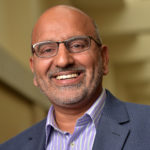 Ebrahim Moosa, Principal Investigator
Ebrahim Moosa, Principal Investigator
Co-Director, Contending Modernities
Professor of Islamic Studies; Department of History & Kroc Institute for International Peace Studies
Ebrahim Moosa PhD (University of Cape Town, 1995) is Professor of Islamic Studies at the University of Notre Dame with appointments in the Department of History and the Kroc Institute for International Peace Studies in the Keough School of Global Affairs. Dr. Moosa held previous appointments at Duke University, Stanford University, and the University of Cape Town. He serves on several distinguished international advisory boards and interacts with communities and leaders in the Muslim world and beyond. Dr. Moosa earned his ʿalimiyya degree specializing in Islamic Studies and Arabic Studies (1981) from Darul Uloom Nadwatul ʿUlama, one of India’s foremost Islamic seminaries in the city of Lucknow, Uttar Pradesh. He also has a BA degree from Kanpur University, and a postgraduate diploma in journalism from the City University in London. He earned his MA (1989) and PhD (1995) from the University of Cape Town.
Dr. Moosa is an expert in Islamic thought, covering modern and premodern Islamic law, theology, contemporary Muslim ethics, and political thought. He is a prominent public intellectual and was ranked among the 500 most influential Muslims in a 2009 annual publication issued jointly by the Prince Waleed Bin Talal Center for Muslim Christian Understanding at Georgetown University and Jordan’s The Royal Islamic Strategic Studies Center. In 2007 he delivered the distinguished annual Durus Hasaniyya Lecture to his Majesty King Mohammed VI of Morocco in Arabic in a live broadcast to a regional audience. In 2012 he delivered the Langford Lecture at Duke University, and in November 2014 gave the Wold Lecture on Religion and Conflict at Union College.
Dr. Moosa was trained in both traditional (orthodox) Islamic institutions in India and in the modern academy specializing in the study of religion at the University of Cape Town. He has a track record of reaching multiple audiences around the world. In his role as a scholar and public intellectual, Dr. Moosa has addressed audiences that have included among them prominent global statesmen and thought leaders such as former President Bill Clinton, former secretary of state Hillary Clinton, former Prime Minister Abdullah Badawi of Malaysia, Malaysian opposition leader Anwar Ibrahim, and ministers of state in Turkey. Dr. Moosa consulted for the office of the late President Nelson Mandela of South Africa as well as for members of his cabinet. He has addressed audiences at the Council on Foreign Relations, the Sun Valley Writers’ Conference, worked with UN officials on matters related to governance in the Islamic world, and participated in other international and prestigious initiatives. He frequently publishes op-ed pieces in leading publications such as The Boston Review, Atlanta Journal-Constitution, Washington Post, The New York Times and is a frequent commentator on Islam, religion, and world affairs.
Dr. Moosa has published extensively on the history of contemporary Islamic thought, Islamic reform and the reconstruction of tradition. His scholarly interests range from traditional Islamic education, human rights, gender, politics, and citizenship to bioethics and science and the human person. His book, What is a Madrasa?, published in 2015, is an important study on South Asia’s traditional Islamic seminaries (University of North Carolina Press). He has also published widely on medieval Islamic thought, with special reference to the major twelfth century Muslim thinker, Abu Hamid al-Ghazali (d. 1111). His prize-winning book Ghazali and the Poetics of Imagination (University of North Carolina Press, 2005) was awarded the Best First Book in the History of Religions by the American Academy of Religion. He is also a co-editor of The African Renaissance and the Afro-Arab Spring, forthcoming Summer/Spring (Georgetown University Press, 2015). Already published are: Islam in the Modern World (Routledge, 2014) and Muslim Family Law in Sub-Saharan Africa: Colonial Legacies and Post-Colonial Challenges (Amsterdam University Press, 2010). He is also the editor of the last manuscript of the late Professor Fazlur Rahman, Revival and Reform in Islam: A Study of Islamic Fundamentalism (Oxford: Oneworld, 2000).
At the University of Notre Dame, Dr. Moosa is tasked with designing an innovative program in Islamic Thought and Muslim Societies (ISTHMUS) in the Keough School of Global Affairs with partnerships in the College of Arts and Letters. ISTHMUS aspires to become the premier venue for the study of Islam in both contemporary and historical contexts with specific attention to ethics, law, politics and society. Dr. Moosa also codirects Contending Modernities, a multi-disciplinary project devoted to generating new knowledge and greater understanding of the ways that religious and secular forces interact in the modern world. As a part of that initiative, Dr. Moosa sought funding from the John Templeton Foundation to equip madrasa graduates with the intellectual tools to engage the intellectual currents of our time. Having himself experienced the conceptual challenge of transitioning from a madrasa to an academic context, Dr. Moosa, in his own words, “could not not engage in such a project” at this stage in his professional career. In his own work with Madrasa students, Dr. Moosa is attempting to make this transition easier for the next generation of Islamic scholars.
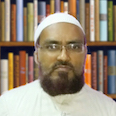 Waris Mazhari, Lead Faculty in New Delhi
Waris Mazhari, Lead Faculty in New Delhi
Lead Faculty, Contending Modernities
Lecturer, Jamia Millia Islamia
Dr. Waris Mazhari PhD (Jamia Millia Islamia, 2013) is presently a guest lecturer at the Department of Islamic Studies, Jamia Millia Islamia, in New Delhi. For the past fifteen years, he has been with the Darul Uloom Deoband Old Boys Organization as an editor of its Urdu monthly journal Tarjuman-e- Darul Uloom. Dr. Mazhari served as Research Associate for Virtual Dialogues, an initiative at Duke University in North Carolina, USA, from August 2011 to July 2013. The monthly magazine Communalism Combat dedicated a special issue to his writings on peace, non-violence, and interfaith dialogue, under the theme Rediscovering the Tolerant Tradition in Islam in May 2010. Dr. Mazhari is a prolific writer with countless articles and multiple books under his name. Among these is Hindustani Madaris ka talimi nizam aur us men islah ki zarurat: aik jaiza, a work that discusses the need for reform in the madrasa curriculum, published in Urdu in 2014. His chief interests are in the areas of interfaith dialogue, peace and social harmony, the reconstruction of religious thought in Islam, and reform in Indian madrasas. Many of his articles have been translated into other languages.
Born to a middle class family in a small village, Dr. Mazhari grew up in rural India away from urban centers of cosmopolitanism, development, and technology. He lost his parents in infancy, received little formal education in his formative years, and was employed as a child laborer on a farm. He eventually received basic religious education from a local madrasa where he memorized the entire Qur’an. However, by the age of sixteen he had completed the prerequisites to formally join a madrasa, enrolling in the renowned Darul Uloom Deoband. Graduating with the Fazilat degree (equivalent to graduate level work) in 1995, Dr. Mazhari advanced to Jamia Millia Islamia, New Delhi, graduated in 2005, and received a master’s degree in 2008 in Islamic Studies. He received his PhD in 2013 from the same university.
Dr. Mazhari’s engagement with issues related to madrasa reform makes him both qualified and enthusiastic for the “Advancing Scientific and Theological Literacy in Madrasa Discourses” project in India. For Dr. Mazhari, bringing contemporary academic discourses into conversation with madrasa learning is necessary to keep traditional scholarship alive and relevant in the modern world. He has written three books on the madrasa education in India and, as a graduate of one of the most renowned madrasas himself, believes that reforms are necessary to enrich and nuance the engagement of young graduates with the world. Dr. Mazhari is passionate about the vital role that madrasas have played in the history of Muslim civilization and considers his work a humble effort to maintain that legacy.
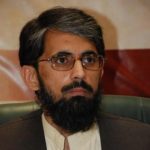 Ammar Khan Nasir, Lead Faculty in Gujranwala
Ammar Khan Nasir, Lead Faculty in Gujranwala
Lead Faculty, Contending Modernities
Professor, GIFT University
Muhammad Ammar Khan currently teaches Arabic and Islamic Studies at GIFT University in Gujranwala, Pakistan. He has served as editor of the Monthly Al-Shari’ah since 2000 and was assistant editor from 1989-2000. Prior to joining GIFT, he taught various subjects of the Dars-e Nizami course at Nusrat al-Uloom from 1996 to 2006.
Born and raised in Gakhar Gujranwala, Pakistan, Muhammad Ammar Khan Nasir followed in the scholarly footsteps of his father, Mawlana Zahid al- Rashidi, known for a sound and balanced religious approach, and his grandfather, Mawlana Muhammad Sarfaraz Khan Safdar, considered to be the academic voice of the Deobandi School in the country. Having begun his religious education in Madrasa Anwar al-Uloom Gujranwala, he went on to obtain Shahada Alamiyyah from Madrasa Nusrat al-Uloom Gujranwala in 1994. He later earned a master’s degree in English Literature from the University of the Punjab in 2001.
Muhammad Ammar Khan’s body of written work is largely in Urdu. His first work, Imām Abū Ḥanīfa wa-ʿamal biʾl-ḥadīth (Imam Abu Hanifa and Adherence of Hadith) appeared in print in 1996. In 2007, he academically reviewed the recommendations of the Council of Islamic Ideology, Government of Pakistan, regarding Islamic Punishments. His research on the issue was later compiled and published by Al-Mawrid, a Foundation for Islamic Research and Education in Lahore, titled Ḥudūd-o Taʿzīrāt: chand aham mabāḥith (Discussions on Islamic Penal Code). His other research works include Masjid Aqṣā kī tārīkh awr haqq-i tawalliyāt (History of the Sacred Mosque in Jerusalem and the Question of its Guardianship) and Jihād – Aik Muṭālaʿa (A Critical Study of Theological Understandings of Jihad). His work on Masjid Aqsa is especially related to the subject of religion and conflict transformation as it tries to hammer out a workable solution to the thorniest religious conflicts of the present-day world. His research articles on a variety of religious issues appear regularly in the Monthly Ishrāq, Lahore; Monthly Al-Sharīʿah, Gujranwala; and Monthly Nuṣrat al-ʿUlūm, Gujranwala.
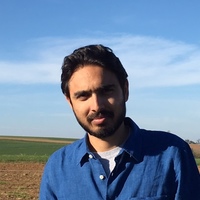 SherAli Tareen, US-Based Faculty
SherAli Tareen, US-Based Faculty
Associate Professor of Religious Studies at Franklin and Marshall College
SherAli Tareen is Associate Professor of Religious Studies at Franklin and Marshall College, and author of Defending Muhammad in Modernity (University of Notre Dame Press, 2019). His work centers on Muslim intellectual thought in modern South Asia with a focus on intra-Muslim debates and polemics on crucial questions of law, ethics, and theology. Tareen is also interested in the intersection of secularism and Muslim intellectual thought, Muslim political thought, and Muslim revolutionary politics in the inter-war period. His various articles have appeared in the Journal of Law and Religion, Muslim World, Political Theology, Islamic Studies, Journal of the Royal Asiatic Society, ReOrient, among many others. His academic publications can be found at: http://fandm.academia.edu/
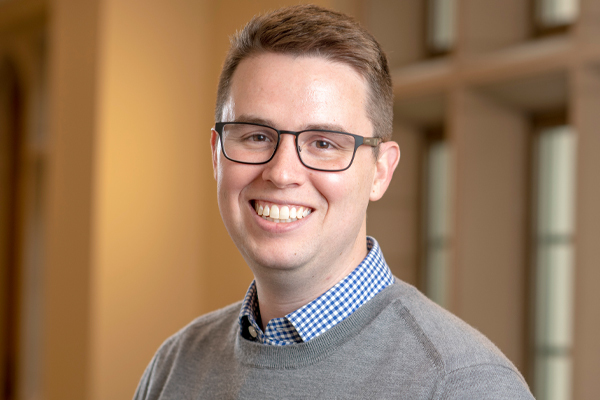 Josh Lupo, Classroom Coordinator
Josh Lupo, Classroom Coordinator
Contending Modernities Content Writer/Editor; Classroom Coordinator, Madrasa Discourses
Kroc Institute for International Peace Studies
Josh is the editor and writer for the Contending Modernities Blog and the classroom coordinator for the Madrasa Discourses program. In his role as editor and writer for the blog, he prepares posts for publication, solicits scholars to contribute to the blog, and writes blog posts. In his role as classroom coordinator for Madrasa Discourses, he develops curriculum and manages online learning systems.
Josh received his PhD in the spring of 2018 from Florida State University’s Department of Religion. His research interests include theory and method in the study of religion, philosophies both in and of monotheistic traditions, and political theory. His dissertation, “After Essentialism,” analyzed how phenomenologists of religion in the first half of the twentieth century appropriated—and misunderstood—classical philosophical phenomenology, and argued that Heidegger’s existential phenomenology was a model for scholarly critique in the contemporary study of religion. He has published articles and reviews in Soundings, Reading Religion, Sophia, and Religious Studies Review.


